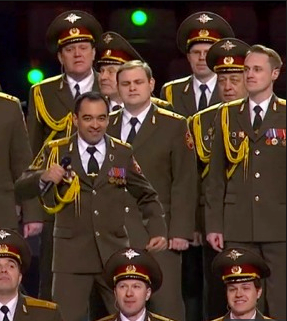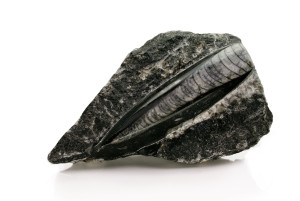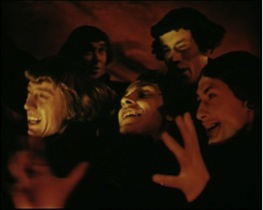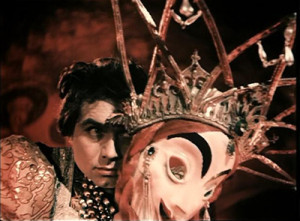We Can Be Heroes: The Winter Poetry Olympics Part IV: Orthoceras
LARB returns with a sequel to its “Poetry at the Olympics” series, featuring poets from across America responding to the Winter Olympics at Sochi.
By Joyelle McSweeneyFebruary 13, 2014

1.

CONFESSION: I have not been watching the Olympics. First, I have no television. Second, you can sense Putin’s magnetic unpleasantness without recourse to actual concrete means of technological transmission. His glamour-menace moves through the ether like an airship made of eye. Third, I don’t like the jingoistic air that US transmissions assume when broadcasting from foreign shores. The inevitable toilet/toilet paper reportage is particularly irritating to me, and more so when intercut with commercials for our own soft-hued and ecologically hostile array of pharmaceutical products, from Johnson & Johnson Baby Wash to Coke.
2.
However, a friend did post on my Facebook page that viral clip of the Russian police choir — that is the choir of the Ministry of Internal Affairs — singing the Daft Punk/Pharrell/Chic disco hit, “Get Lucky.” Within the ice dome of compulsory heterosexuality that is Sochi, the irony of this all-male, gaily attired group of stolid policemen campily performing this number is obvious. “We’ve come too far to give up who are,” Pharell italicizes through their mouths. The policemen wear comedy-sized peaked hats, lots of gold braid, lots of medals, very tired looking eyes, novelty mustaches. Some are semi- loosened up — the soloists swivel their hips like GIFs — others stiff and uncomfortable. It is not clear whether they have been directed to sway or to not sway, to party or to patrol Club Lucky with the grimmest and most watchful of eyes. Those glassy eyes might be made of Google glass.
3.
And yet.
And yet at just a handful of moments in this clip, the embarrassing soloists are suddenly subsumed into something much larger, something sublime. At these moments, the full strength of the male chorus is heard, singing for just a few bars of rising polyphony. These chords are muscular, transporting, angelic, made not just of gold braid but of gold.
And every angel is terrible. Especially these.
And before this menace-choir, however miniaturized on my laptop screen, I feel transported. I feel exhilarated. I feel moved simultaneously backwards and forwards in time. The choir opens its collective throat and forms a wormhole that swallows me up.
4.
I am falling through time; it is time made of sound; loud, male, absolute Russian voices singing in indivisible, architectural harmonies I don’t have the technical language to intellectualize. I am tumbled like Alice to the Court of Ivan Grozny, but not the real Ivan Grozny — Ivan Grozny as rendered in Eisenstein’s film. And not just any portion of Ivan Grozny, but that miraculous scene in the second (banned) part, the raucous, enflamed dance number in which the black and white film is lit up with rapturous color, and the all-male Oprichniki (Ivan’s band of secret police) dance out the festive murder they are about to commit —
 the most handsome in drag as a maiden.
the most handsome in drag as a maiden.

In some ways this scene is the inverse of Putin’s buttoned-up policemen uncomfortably wading through a dance hit. Yet as inverses, the scenes are also linked. One is the underside of the other. As Slavoj Zizek observed in his book The Parallax View, Eisenstein’s Oprichniki sequence, shot in 1944 and subsequently banned, “confirm[s] the carnivalesque quality of Stalinist purges.” He opines:
[H]ere we are at the obscene sight where musical enjoyment meets political liquidation.
This analysis could also apply to Sochi as a focus of Putin’s chauvinist regime, where spectacle meets the liquidation of gays, dogs, feminists and the inconvenient poor. Regarding the Oprichniki sequence, Zizek further queries,
If then, Eisenstein stages the obscene underside of the Stalinist universe, what would have been its public face, the Stalinist genre par excellence?...[T]he unique genre of the so-called kolkhoz musicals. […] There are no traitors in these films, life is fundamentally happy in them. […] In this harmonious universe even animals—pigs cows chickens—dance happily with humans.
One could ponder whether the policemen singing “Get Lucky” is more like an Eisensteinian farce, revealing the carnivalesque quality of Putin’s regime, an obscene sight which brings more to light than it intends, or if it is more like the kolkhoz musicals: the preferred genre, the cover story, where the cops “dance happily with humans.” I believe it is the latter. Maybe it could be both.
5.
In the iron grip of the Cold War, the great Swedish poet Tomas Transtromer wrote “Till vänner bakom en gräns”/“To Friends Behind a Border,” a nine-line poem which dreams of communication with friends living in Soviet regimes. The poem (here in Johannes Goransson’s English translation) positions itself as an impossible transmission:
what I couldn’t write
swelled and swelled like an old-fashioned zeppelin
and drifted at last through the night sky
The impossible dream transmission of poetry mobilizes an anachronistic form of transportation — the “luftskepp,” airship or zeppelin — which is also a warship. Even in Deep Image poetry, even in the dream, technology cannot be divorced from war. In the second tercet, the dream letter falls into the hands of the censor. In the third, the poet concludes:
Read between the lines. We are going to meet in 200 years
when the microphones in the hotel walls are forgotten
and finally get to sleep, become orthoceras.
In this audacious stanza, the sweep of futurity forms radically long sight lines, zooms the “we” to a future in which the surveillance technology, “microphones,” become fossils, “orthoceras.” But what radical transformation will the “we” have undergone by this time? Will “we” be fossilized, or broken down into our constituent minerals and chemicals; will “we meet” molecularly, decomposing in a mass grave, or meet by being reused by a future organism? Do these fossils represent extinction, i.e. the end of time, or gesture towards its cyclicality? Will evolution reboot? And what will “we” be then? What will we be?
6.
It’s only been five decades since Transtromer wrote this perfect poem, but it feels like 200 years, and several millenia when measured by technology’s lifespan. The world is so tired. The hotel rooms are so messed up. There are certainly bugs in the walls and in the beds, while honeybees and monarch butterfly populations are nearly snuffed out. The technology in Transtromer’s poem — the airship, the censor’s desk lamp envisioned in the second stanza, the microphones in the last — have surely reached their fossilized state, though poetry may at any time remobilize them for its own covert and dream operations. Transmissions now reach all over the world; Putin puts his image in my head just by thinking about it; Coke is it; Pharell’s falsetto issues from the mouths of the cops. Are we in the end times or are we being challenged to evolve? Can we evolve from here or are we petrified? Hooray, we tell ourselves, on the internet there are no more borders — and yet we know it’s not really true. Not everyone has the same internet, and not for long. Nevertheless, it’s morning in Sochi, and on Facebook: click click, hit hit. The police rock out in Global English but it’s cut with a torrent of anachronistic threats and resemblances, it’s cut with the Sublime. The polyphony and the pop invert each other. The rupturing of the pop glossiness trenches the global “flatness” of capitalism with a tense and volatile striation, a gutter border, a paradoxical zone, at once obscene and occult, generating dark matter.
7.
As Transtromer wrote to Hungarian poets in 1971, “truth appears only at the borders.”
¤
LARB Contributor
Joyelle McSweeney is the author of two hybrid-genre novels: Flet, a sci-fi (Fence, 2008) and Nylund, the Sarcographer (Tarpaulin Sky Press, 2007), a baroque-noir. She is also the author of two volumes of poetry, The Commandrine and Other Poems (Fence, 2004) and The Red Bird, which was chosen by Allen Grossman to inaugurate the Fence Modern Poets Series in 2001. With Johannes Göransson, she publishes Action Books and Action, Yes, a press and web-quarterly dedicated to international writing and hybrid forms.
LARB Staff Recommendations
We Can Be Heroes: The Winter Poetry Olympics Part III: Slopestyle, Sorokin-style: Sochi 2014
LARB returns with a sequel to its “Poetry at the Olympics” series, featuring poets from across America responding to the Winter Olympics at Sochi.
We Can Be Heroes: The Winter Poetry Olympics Part II: The Not-So Secret Puck: Women’s Ice Hockey and Don DeLillo’s "Amazons"
LARB returns with a sequel to its “Poetry at the Olympics” series, featuring poets from across America responding to the Winter Olympics at Sochi.
Did you know LARB is a reader-supported nonprofit?
LARB publishes daily without a paywall as part of our mission to make rigorous, incisive, and engaging writing on every aspect of literature, culture, and the arts freely accessible to the public. Help us continue this work with your tax-deductible donation today!